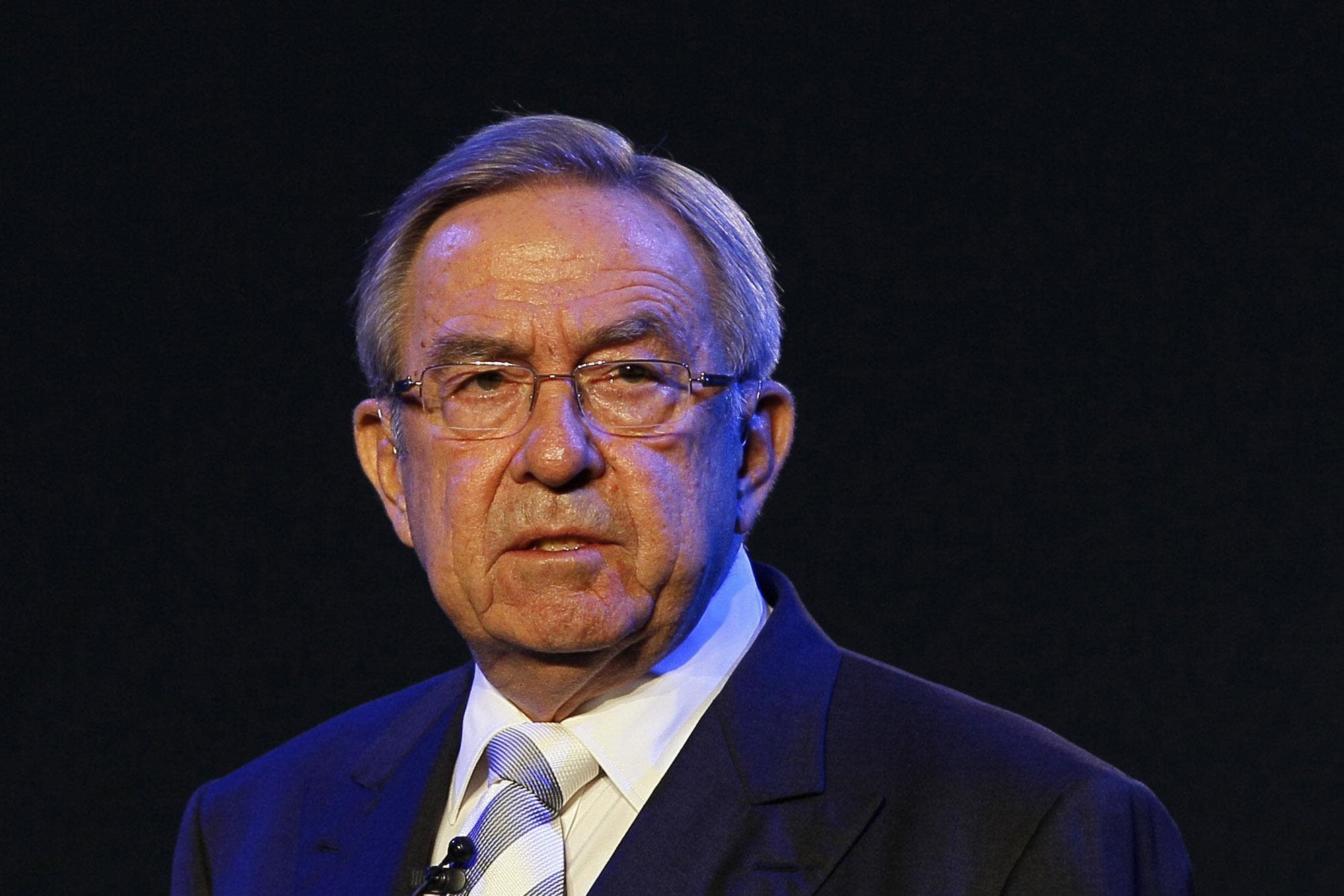Princess Royal joins foreign royals at funeral of last king of Greece
Constantine II, a second cousin of the King and one of the Prince of Wales’s godparents, died last week aged 82.

The Princess Royal joined foreign monarchs and thousands of mourners in Athens for the funeral of the last king of Greece, Constantine II.
Anne represented the King at the sombre ceremony where crowds chanted “long live the king” and “Constantine, Constantine” as his coffin emerged from the Greek capital’s metropolitan cathedral following the funeral service.
Charles was unable to attend the funeral of Constantine, who was distantly related to the British royal family, due to diary commitments including meeting the President of Cyprus during Monday morning.
Constantine was a godfather of the Prince of Wales and Lady Gabriella Windsor, daughter of Prince and Princess Michael of Kent, and William asked his relative Gabriella to represent him at the funeral.
Royals from across Europe, including the Spanish and Danish royal families, who were closely related to Constantine, were in Athens to attend the service and burial, while hundreds of police were deployed in the Greek capital.
Constantine’s wife, Anne-Marie, is the sister of Denmark’s Queen Margrethe II, who attended, while his sister Sophia is the wife of Spain’s former King Juan Carlos, and mother of Spain’s current monarch, King Felipe VI who was joined by his wife Queen Letizia at the funeral.
King Carl XVI Gustaf of Sweden and his wife Queen Silvia were also among the mourners as was Prince Albert of Monaco.
Greece’s monarchy was abolished after a referendum in 1974, and Constantine, a distant cousin of the King, spent decades in exile, living mainly in Hampstead Garden Suburb in north London before returning to settle in his home country in his final years.
Constantine was said to have been especially close to Charles and he was also a sailing partner of the King’s father, the Duke of Edinburgh.
As the coffin was taken from the cathedral after the ceremony, the late Greek king’s wife Anne-Marie and his eldest son Pavlos followed at the head of the funeral procession.
The coffin, draped with the Greek flag, was loaded into a hearse for the trip to Tatoi, the former royal estate north of Athens where Constantine will be buried near his parents and ancestors.
The Greek government announced after his death that Constantine would be buried as a private citizen, without honours reserved for former heads of state.
A limited lying in state was allowed in a chapel next to the capital’s metropolitan cathedral, where the funeral service was held.
Constantine, who died aged 82 in an Athens hospital last week, acceded to the throne at the age of 23 in 1964, the youthful monarch, who had already achieved glory as an Olympic gold medallist in sailing, was hugely popular.
By the following year, he had squandered much of that support with his active involvement in the machinations that brought down the popularly elected Centre Union government of prime minister George Papandreou.
The episode, still widely known in Greece as the “apostasy” or defection from the ruling party of several politicians, destabilised the constitutional order and led to a military coup in 1967.
Constantine eventually clashed with the military rulers and was forced into exile.
The dictatorship abolished the monarchy in 1973 and a referendum after democracy was restored in 1974 dashed any hopes Constantine had of reigning again.
Bookmark popover
Removed from bookmarks